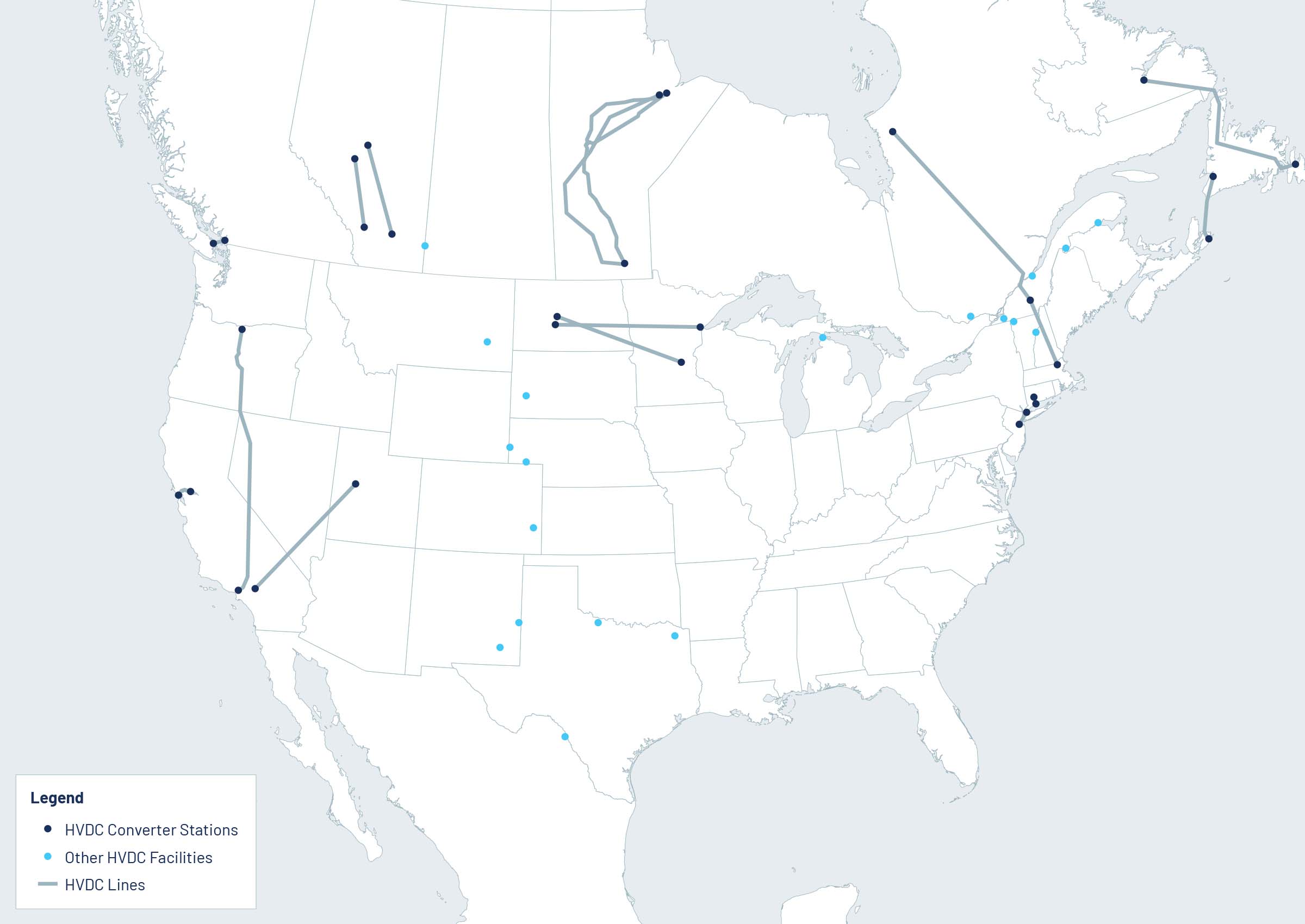Strengthening the Grid With Transmission
America’s electric grid, originally built in the early 20th century, powered the United States’ rise as an economic powerhouse. Today, however, 70% of our power lines are over 30 years old, while energy demand continues to grow, and the way power is generated and where energy resources are located has evolved. Aging infrastructure, increasing weather-related power disruptions, and the critical need for energy security, demand immediate action to strengthen and modernize our grid.
Grid United develops long-distance transmission lines that bolster America’s energy security, enhance grid reliability, and ensure our power grid is resilient enough to support economic growth and meet the nation’s energy needs well into the future.
Grid United is advancing transmission projects in strategic locations.

THE ADVANTAGES OF TRANSMISSION
Reliability
New transmission capacity, particularly interregional transmission lines, provides black start power or emergency power during extreme weather events. Additionally, interregional transmission lines help mitigate the effects of extreme weather events by allowing new generation to be imported from other areas that are not affected by extreme weather.
Efficiency
New transmission capacity results in cost savings, because new transmission capacity allows power that would otherwise contribute to congestion to be shifted to serve new customers. As this tool showcases, power prices between regions can differ dramatically. Transmission lines are open to all sources of electrical power generation.
Recent reports describe the benefits of transmission buildout.
Understanding Direct Current Technology
Grid United utilizes direct current (DC) or alternating current (AC) technology depending on the use case for each project. DC is the preferred technology for moving large amounts of power across long distances. DC results in higher overall efficiency and reliability than an AC system moving the same amount of power.
The Advantages of DC
More
Efficient
Lower
Cost
Higher efficiency means a lower transmission cost, resulting in overall lower electricity costs for consumers.
Improved
Reliability
DC transmission can enhance system stability, allow the operator complete control over power flow, and facilitate the integration of energy from different resource areas.
Smaller
Footprint
Due to a higher efficiency, DC transmission lines can move more power in a given right of way, reducing the need for multiple rights of way and allowing for a smaller footprint.
Currently there are more than 20 DC transmission facilities in the United States and more than 35 DC transmission facilities across the North American grid, as indicated in the map below.


